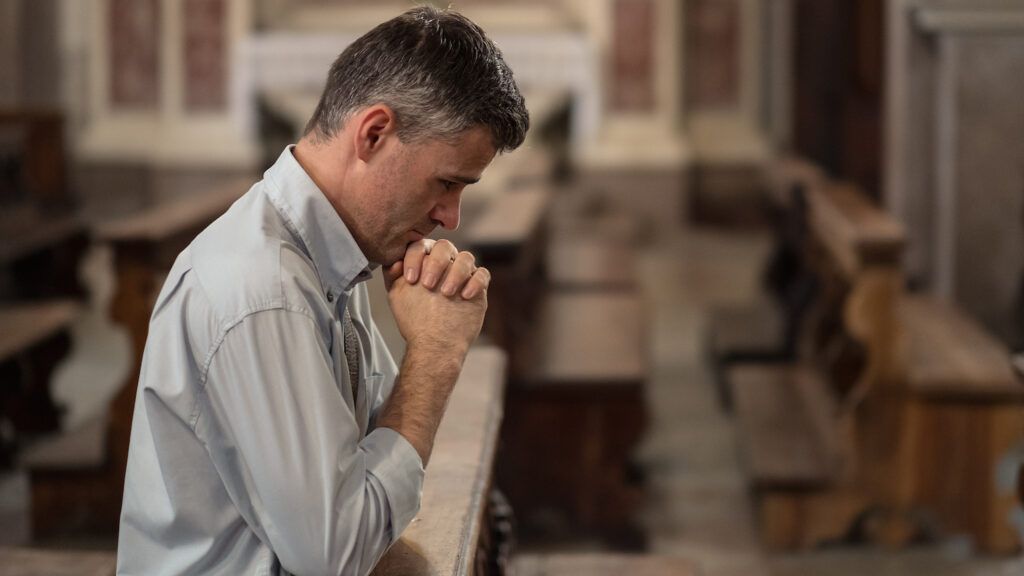If you’re anything like me, your prayers often reflect impatience, even petulance. “Hurry up, God!” “What’s taking so long?” But the person who prays must learn to wait on God. So what does that mean? How do we do that? Waiting on God is not a passive posture. It involves action. It requires effort, much of which is counter-intuitive, particularly to 21st century people.
Here are 6 ways to actively wait to hear from God:
1. Don’t stop praying.
David, the great shepherd-king of Israel, earned a Ph.D. in waiting on God. He wrote and sang of it often:
I waited patiently for the Lord; And He inclined to me and heard my cry (Psalm 40:1, NASB).
Wait for the Lord; Be strong and let your heart take courage; Yes, wait for the Lord (Psalm 27:14, NASB).
Indeed, none of those who wait for You will be ashamed (Psalm 25:3, NASB).
Who better, then, to show us how to wait on God than David and his Psalm 130? Psalm 130 is a prayer from beginning to end. David pours out his heart to God:
Out of the depths I have cried to You, O Lord.
Lord, hear my voice!
Let Your ears be attentive
To the voice of my supplications (Psalm 130:1-2, NASB).
Waiting on God is not a cessation of prayer, a pause but intensification. If we are waiting on God we are, if anything, more active in prayer than we were before.
2. Examine yourself.
As he waits, David’s thoughts turn inward, reflecting on the status of his heart and life and reminding himself of God’s fondness for forgiveness:
If You, Lord, should mark iniquities,
O Lord, who could stand?
But there is forgiveness with You,
That You may be feared (Psalm 130:3-4, NASB).
While we wait on God, we also search our own hearts to confess any sin that may hinder an answer or make any surrender that will further align us with God’s plans and purpose.
3. Focus and refocus your heart, soul and mind.
David doesn’t spend his time twiddling his thumbs or pacing the floor; he focuses his thoughts and aligns himself with God’s word:
I wait for the Lord, my soul does wait,
And in His word do I hope (Psalm 130:5, NASB).
Waiting on God often involves reading and repeating God’s word and focusing our thoughts on “what is true, and honorable, and right, and pure, and lovely, and admirable….[and thinking] about things that are excellent and worthy of praise” (Philippians 4:8, NLT).
4. Keep your eyes and heart open and alert.
Waiting on God requires a heightened attentiveness and watchfulness in which you scan your surroundings, circumstances, conversations and “coincidences” for clues and indications of God’s answer on the horizon:
My soul waits for the Lord
More than the watchmen for the morning;
Indeed, more than the watchmen for the morning (Psalm 130:6, NASB).
A watchman on the walls of a city was constantly searching the horizon and scanning the landscape for movement. The soul who waits on God will be similarly alert for hints and harbingers of God at work.
5. Keep trusting, reminding and hoping.
Even as he waits, David reminds himself and those around him of who God is, what God has done and why they should continue to hope in Him:
O Israel, hope in the Lord;
For with the Lord there is lovingkindness,
And with Him is abundant redemption (Psalm 130:7, NASB).
6. Keep going.
Too often when we are waiting on God—or think we are—we tense and freeze and stop progressing. But God is just as able to close doors and pathways as He is to open them. So rather than choosing inaction, we who wait on God can keep moving ahead, trusting as David did that God will guide our steps as we go:
And He will redeem Israel
From all his iniquities (Psalm 130:8, NASB).




